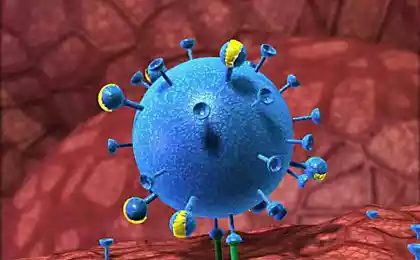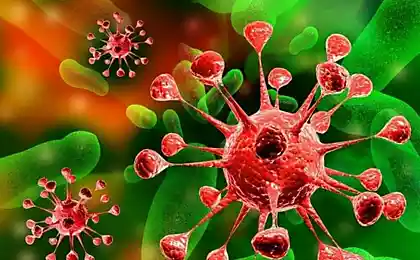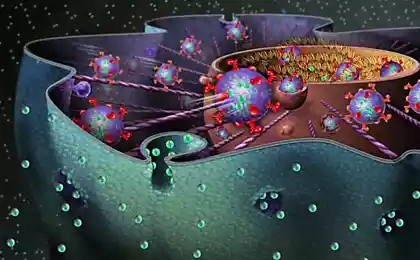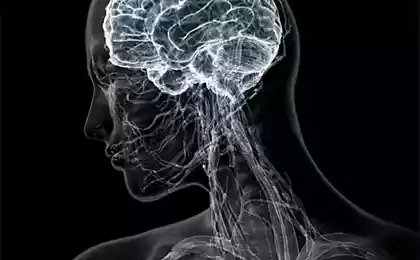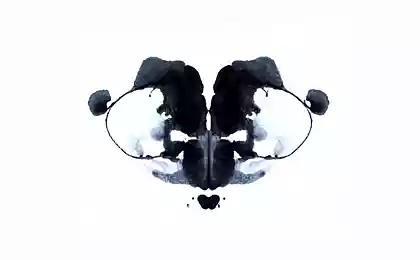1621
Viruses are tested for the title of "living organisms"

Until now, it was thought that viruses exist only as particles primitive DNA or RNA and hence, they lacked the immune system is fully formed.
In a study published in the journal «Nature», for the first time said that the virus can really enjoy the immune system, not to mention other qualities usually associated with complex forms of life.
The belief that viruses are living beings "due to the fact that viruses have their own complex genome they are duplicated, and develop," said co-author Andrew Camilli of Tufts University School of Medicine in an interview «Discovery News».
"The fact that the virus has a full immune system" proves "that viruses are living beings, but it is really a powerful argument," he said.
Living organisms are usually defined by the presence of vital functions, such as the ability to grow and adapt to the environment for generations. Viruses are now on the border between biological education and actually living being.
Camilli and his colleagues in their studies have focused attention on viruses bakterii- predator - cholera. This type of virus known as a bacteriophage ("phage" for short).
Lead author of the study and associate in the laboratory Camilli, analyzed the DNA of phages taken from stool samples of patients with cholera in Bangladesh. As a result, genes were discovered amazing functional immune system previously available only in some types of bacteria.
To test the opening, he and his colleagues used phage display without the immune system to infect a new strain of cholera bacteria.
Moreover, some viruses have the immune system, some of them can also pick immunity in bacteria.
Scientists have found that viruses can pick immunity in bacteria, during the phase when the "viral gene is replicated on dozens of copies in the infected host cell," says Camille. Therefore, the virus "steals" the immune system bacteria. This is beneficial to the virus.
"The immune system allows the phage to identify and destroy specific inhibitory genes of the host cell, just to break the parasite genes," says Sid, in an interview with «Discovery News». Thus, there is the following: "phage essentially disarms the host cell, and may then proceed to infection and its complete destruction.»
Although we tend to associate viruses and bacteria with health risks, but this is not always the case. In this case, the cause of the virus for human use.
Camilli said that "the phages are killers of bacteria. Defending their lives, the virus does to the human body a favor ».
Researchers hoped that this can lead to the formation of so-called "superbugs", which will be able to replace most of the currently existing antibiotics.
Mammals, including humans possess an immune system which, unlike bacteria immunity encoded much larger DNA fragments.
"These viruses should be widely use to capture the immune system of dangerous viruses," he added. "In the case of phage, we have shown that it can be used for the destruction of the immune system cholera bacteria. This may or may not be true for other types of the immune system of other bacteria. "
Moyneo Sylvain (Sylvain Moineau), Professor, Department of Biochemistry, Microbiology and Bioinformatics at the University of Laval, is one of the world's leading experts on bacteriophages. Moyneo told «Discovery News», that the opening of the phage with the immune system "is a wonderful find. It seems that phages can always find a way to make an impression on us ».
Moyneo and his colleague Manuela Viollion (Manuela Villion) recalled that phages are among the most common biological objects in the world, surpassing their host bacteria tenfold. The question of whether we can consider them as living beings, is still being debated.
Scientists have discovered why parasites can live in the body for decades
Global carbon dioxide emissions continue to increase
